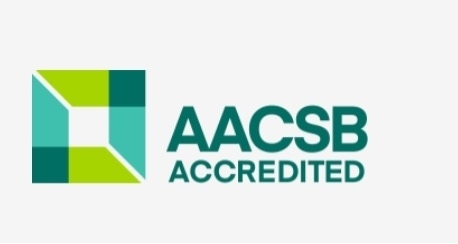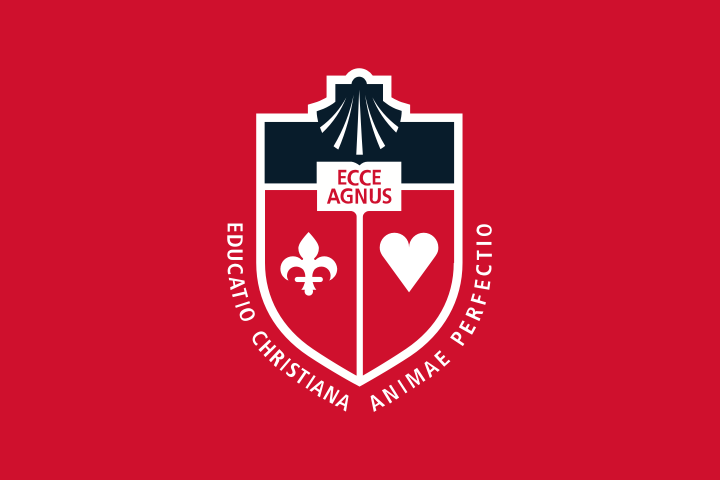

GR
Accounting, Master of Science
The program consists of 33 credit hours of accounting, auditing, and taxation courses.
- Home
- Academics
- Majors and Programs of Study
- Accounting, Master of Science
The Master of Science in Accounting (M.S.) is designed to help professionals understand the function of accounting within their organizations and in the global marketplace and to relate sophisticated theoretical concepts to practical problems. The demand for specialists in the field of accounting has accelerated dramatically as financial regulations have evolved and will only continue to grow as corporations continue to become more transparent. Graduates of the M.S. program are prepared to leverage their knowledge and skills to become the accounting professionals of the future.
- Degree Type
- MS
- Area of Interest
- Business
- Associated Colleges or Schools
- Program Location
- Queens Campus
- Online
- Required Credit Hours
- 33
The 33-credit M.S. program, offered on campus and online, fulfills all of the accounting education requirements to sit for the uniform CPA examination and fulfills the education requirements to be licensed as a certified public accountant (CPA) in the State of New York. Undergraduate non-business majors should consider the Master of Business Administration in Accounting (M.B.A.) program. The 57-credit M.B.A. program meets both the accounting and business education requirements to sit for the uniform CPA examination. The M.S. program continues to build on St. John’s University’s reputation as a premier local, national, and international leader in accounting education. Our unique relationships provide us with collaborative links to industry and professional groups, as well as affording specialized academic expertise. Our faculty are well qualified holding doctoral or terminal law (LL.M.) degrees and CPA licenses while several faculty members hold additional professional designations.
The M.S. is intended to provide students with the specialized technical knowledge in accounting, tax, and auditing that will enable them to enter or advance their careers in the profession of public accountancy or in managerial positions in industry, government, and not-for-profit organizations. The M.S. program is offered at our Queens campus as well as through an electronic platform that enables us to offer the entire program online.
Curriculum
Master of Science in Accounting Program of Study
This 33-credit Master of Science (M.S.) in accounting program fulfills all the accounting education requirements to sit for the Uniform CPA examination and fulfills the education requirements to be licensed as a certified public accountant (CPA) in the State of New York. Students are expected to have an undergraduate or graduate degree in business or a related field and thus they have already completed 36 credits of business courses. The curriculum is designed to help professionals understand the function of accounting within their organizations and in the global marketplace and to relate sophisticated theoretical concepts to practical applications.
Graduates advance their careers in the accounting profession or in managerial positions in industry, government and not-for-profit organizations. If a student intends become licensed in the State of New York, they are required to satisfy additional examination and experience requirements.
Curriculum M.S. in Accounting (33 credits – 11 courses):
Professional Curriculum (33 credits)
- ACC 615 Financial Reporting: Concepts and Applications †
- ACC 630 Financial Reporting: Specialized Topics †
- ACC 638 Business Entities and Combinations
- ACC 639 Government and Not-for-Profit
- ACC 620 Global Managerial Accounting I †
- ACC 622 Global Managerial Accounting II
- AIS 623 Auditing: Concepts and Applications
- AIS 624 Information Technology Auditing
- AIS 625 Accounting Ethics and Professionalism
- TAX 635 Business Tax Planning
- TAX 610 Individual Tax Planning †
† Undergraduate accounting majors may request permission to waive these courses and/or select substitute courses from the list of accountancy, assurance and information systems, or taxation electives.
The M.S. curriculum is designed to build your specialized technical knowledge and competencies across the accounting, tax and auditing disciplines. The online program consists of 33 credit hours of accounting, auditing, and taxation courses.
Students with a business background will take 11 M.S. online courses that include:
- Core courses: 9 credit hours
- Additional core courses: 21 credit courses
- Capstone course: 3 credit hours
Students who already have a Bachelor of Science degree in Accounting and/or a CPA will take 10 M.S. courses that include:
- Core courses: 9 credit hours
- Capstone course: 3 credit hours
- Electives: 18 credit hours
ACC 624 Information Technology Auditing (3 credit hours)
Prerequisite or Co-requisite: ACC 623 or equivalent. The course evaluates technology controls in mitigating risks in accounting information and communication systems and considers the procedures performed by the internal and external auditors to obtain assurance regarding IT governance; systems acquisition, development, and implementation; systems operations, maintenance and support; continuity planning; and physical and data security.
TAX 635 Business Tax Planning (3 credit hours)
Prerequisite: TAX 610 or equivalent. This course provides a study of tax issues pertaining to corporations, partnerships, and special entities.
ACC 622 Global Managerial Accounting II (3 credit hours)
Prerequisite: ACC 620 or equivalent. This course provides students with an opportunity to discuss and understand pricing decisions and cost management; cost allocation, customer-profitability analysis, and sales-variance analysis; allocation of support-department costs, common costs, and revenues; cost allocation: joint products and byproducts; process costing; spoilage, rework, and scrap; balanced scorecard: quality and time; inventory management, just-in-time, and simplified costing methods; capital budgeting and cost analysis; management control systems, transfer pricing, and multinational considerations; and performance measurement. International and U.S. case studies will be assigned to demonstrate the students’ problem solving and decision-making skills.
ACC 625 Accounting Ethics and Professionalism (3 credit hours)
Taken in the student’s last 12 credits. This capstone course addresses ethical issues relating to professional responsibilities posed by the federal regulatory agencies (e.g. SEC, IRS, GAO, DOL, etc., self-regulatory bodies ((i.e., PCAOB), and professional organizations (e.g. AICPA, IIA, IMA, ISACA, etc.) as well as the code of conduct, used by different states as a basis for professional certification. This course requires students to research current and new accounting and auditing guidance, prepare written memoranda to express their findings, and prepare and deliver presentations on their research. A written report on a selected research project is a major requirement in this course.
ACC 615 Financial Reporting: Concepts and Applications (3 credit hours)
Prerequisites: None. This course examines generally accepted accounting principles underlying the preparation of financial statements in the United States. Topics include the theory upon which financial statements are prepared, as well as its application to valuation, classification, and disclosure of various assets. A comprehensive financial accounting practice set is assigned. The course requires a one-hour non-credit workshop.
ACC 630 Financial Reporting: Special Topics (3 credit hours)
Prerequisite: ACC 615 or equivalent. This course examines accounting issues underlying financial reporting. Topics include accounting for intangible assets, investments, non-current assets, current and long-term liabilities, stock-holders’ equity, earnings per share, cash flows, income taxes, pensions, leases, accounting changes, disclosures, and revenue recognition. Includes a one-hour workshop.
ACC 638 Business Entities and Combinations (3 credit hours)
Prerequisite: ACC 630 or equivalent. This course covers accounting for mergers and acquisitions by corporations, including the preparation of consolidated financial statements and accounting for foreign currency transactions and foreign subsidiaries. Extensive use of Excel required.
ACC 639 Governments and Not-for-Profits (3 credit hours)
Prerequisite: ACC 630 or equivalent. This course examines special accounting procedures and problems related to governmental and not-for-profit entities and the reporting requirements promulgated by the FASAB, the GASB, and other standard-setting bodies. In addition, this course examines governmental auditing standards as promulgated by the Governmental Accountability Office (GAO).
ACC 620 Global Managerial Accounting I (3 credit hours)
Prerequisites: None. This course focuses on the study of managerial accounting as a technique for planning and control. Emphasis is on the manager and management accounting; an introduction to cost terms and purposes; cost-volume-profit analysis; job costing, activity-based costing and activity-based management; master budget and responsibility accounting; flexible budgets, direct-cost variances, and management control; flexible budgets, overhead cost variances, and management control; inventory costing and capacity analysis; determining how costs behave; decision making and relevant information; and strategy, balanced scorecard, and strategic profitability analysis. International and U.S. case studies will be assigned to demonstrate the students’ problem-solving and decision-making skills.
AIS 623 Auditing: Concepts and Applications (3 credit hours)
Prerequisites or Co-requisite: ACC 615 or equivalent. This course provides a study of current auditing theory and techniques; generally accepted auditing standards; the auditing standards of the PCAOB and IFAC, especially as they relate to audit objectives; pre-engagement and audit planning activities; the assessment of internal controls; the uses of sampling; the performance of procedures during the audit; and the various reports and services rendered by independent auditors.
TAX 610 Individual Tax Planning (3 credit hours)
Prerequisites: None. This course examines how to determine taxable income, including coverage of income, exclusions, deductions, and credits.
ACC 600 Financial Statement Analysis I (3 credit hours)
This course examines the basic techniques applied in the analysis of financial statements to evaluate the quality of accounting information. It considers the appropriateness of accounting policies and estimates and discusses possible techniques to undo distortions. Because financial statement analysis is essentially a forward-looking process, it is important to consider issues involved in forecasting future accounting numbers.
ACC 601 Financial Statement Analysis II (3 credit hours)
Prerequisite: ACC 600/equivalent. The course examines contemporary tools and techniques available for analyzing financial statements and other data to derive measurements and relationships that are useful in decision-making. Financial analysis is discussed in detail as a screening tool in the selection of investments or merger candidates, as a method of forecasting future financial and operating results, and as a means of diagnosing managerial, operating, or other problem areas.
ACC 605 Internship in Accounting, Assurance, and Advisory (3 credit hours)
Prerequisite: ACC 623/ACC 628/equivalent. This course provides students with the opportunity to develop accounting, assurance, and advisory skills in an actual work setting outside the classroom. A research paper, a journal of accomplishments, and employer evaluations are required.
ACC 606 Internship in Accounting, Assurance, and Advisory I (1 credit hour)
Prerequisite: ACC 623/ACC 628/equivalent. This course provides students with the opportunity to develop accounting, assurance, and advisory skills in an actual work setting outside the classroom. A journal of accomplishments and employer evaluations are required.
ACC 607 Internship in Accounting, Assurance, and Advisory II (1 credit hour)
Prerequisite: ACC 623/ACC 628/equivalent. This course provides students with the opportunity to develop accounting, assurance, and advisory skills in an actual work setting outside the classroom. A journal of accomplishments and employer evaluations are required.
ACC 608 Internship in Accounting, Assurance, and Advisory III (1 credit hour)
Prerequisite: ACC 623/ACC 628/equivalent. This course provides students with the opportunity to develop accounting, assurance, and advisory skills in an actual work setting outside the classroom. A journal of accomplishments and employer evaluations are required.
ACC 626 Forensic Accounting Principles (3 credit hours)
Prerequisite or Co-requisite: ACC 623/ACC 628/ERM 601/equivalent. This course provides the forensic techniques needed to examine fraudulent financial schemes, with an emphasis on understanding the characteristics of fraud and its prevention and detection.
ACC 628 Internal Auditing (3 credit hours)
This course evaluates risk exposures relating to the organization’s governance, operations and information systems, in relation to: (a) effectiveness and efficiency of operations, (b) reliability and integrity of financial and operational information, (c) safeguarding of assets, and (d) compliance with laws, regulations, and contracts. Prior accounting knowledge is strongly recommended.
ACC 640 SEC Accounting Practice (3 credit hours)
Prerequisite: ACC 602/ACC 615/equivalent. This course examines the registration and reporting requirements contained in various SEC rules such as Regulations S-K, S-X, S-T, and S-B along with exemptions provided under Regulations A and D. Financial reporting releases, industry guides, and staff accounting bulletins are also discussed.
AIS 660 Fraud Examination I (3 credit hours)
Prerequisite or Co-requisite: ACC 623/ACC 628/ERM 601/equivalent. This course examines frauds that have occurred in recent years and addresses: (a) the nature of the scheme and how the fraud was perpetrated, (b) how the fraud was covered up, (c) why the auditors, the board of directors, and the regulators did not discover the fraud, (d) what should have been done by auditors, board members, and regulators to prevent and detect the fraud, and what weaknesses in controls existed to allow the situation to occur.
AIS 661 Fraud Examination II (3 credit hours)
Prerequisite: ACC 660/equivalent. This course analyzes frauds to determine the meaning or type of fraud involved (fraudulent financial statements, misappropriation of assets, or corruption), the people responsible for perpetrating the fraud and their motivation to commit fraud, the risks of fraud by function and why management and other responsible parties fail to uncover fraud, corporate governance and its responsibility, the role of internal controls in fraud prevention, fraud detection, and fraud correction, how to conduct a fraud investigation and maintain proper evidential matter, as well as, ethical considerations.
AIS 662 Accounting Information: Governance and Audit (3 credit hours)
Prerequisite or Co-requisite: ACC 624/equivalent. This course examines audit services and enterprise IT governance to develop the knowledge necessary to provide audit services in accordance with IT audit standards and to assist the enterprise with protecting and controlling information systems. Students will be able to understand and to provide assurance that the enterprise has the structure, policies, accountability mechanisms and monitoring practices in place to achieve the requirements of corporate governance of IT. Prior accounting knowledge is strongly recommended.
AIS 663 Accounting Information: Systems Development and Operations (3 credit hours)
Prerequisite: ACC 624/equivalent. This course examines the acquisition, development, implementation, operations, maintenance and support of accounting information systems and considers appropriate audit and control procedures. Students should be able to provide assurance that the practices for the acquisition, development, testing, and implementation of information systems meet the enterprise’s strategies and objectives, and that the IT service management practices ensure the delivery of the level of services required to meet the enterprise’s objectives. Prior accounting knowledge is strongly recommended.
AIS 664 Accounting Information: Cyber-Security Processes (3 credit hours)
Prerequisite or Co-requisite: ACC 624/equivalent. This course provides an understanding of information security fundamentals and key system security engineering, analysis and assessment techniques, tactics, and procedures that are internationally accepted information security practices. The course will also prepare students to handle security incidents more effectively, leading to improved business response and reduced adverse impacts. Prior accounting knowledge is strongly recommended.
AIS 665 Accounting Information: Protection of Assets (3 credit hours)
Prerequisite: ACC 624/equivalent. This course examines accounting information and communication systems’ security and the protection of information assets to understand and provide assurance that the security architecture (policies, standards, procedures and controls) ensures the confidentiality, integrity, and availability of information assets. Prior accounting knowledge is strongly recommended.
AIS 666 Accounting Information: IT Risks and Controls (3 credit hours)
Prerequisite or Co-requisite: ACC 624/equivalent. This course examines information technology related business risk management and the methodology that includes risk identification, evaluation, and response. The course describes the principles of information technology risk management, the responsibilities and accountability for information technology risk, how to build risk awareness, and how to communicate risk scenarios, business impact, and key risk indicators. Included in the course is the opportunity to create a business-focused, process-oriented and measurement-driven risk response plan. Prior accounting knowledge is strongly recommended.
AIS 667 Accounting Information: Enterprise Resource Planning (3 credit hours)
Prerequisite or Co-requisite: ACC 624/ equivalent. This course develops the student’s understanding of the market and evolution of ERP systems, ERP technology, business process reengineering, process mapping, the ERP life cycle (i.e., planning, package selection, implementation, operation, and maintenance), ERP functionality (e.g., sales, purchasing, HR, accounting, plant maintenance, and warehousing), and ERP auditing/security issues. Prior accounting knowledge is strongly recommended.
AIS 668 Accounting Information: Analytics and Forensics (3 credit hours)
Prerequisite: ACC 624/equivalent. This course examines issues related to the automated monitoring of a company’s financial and non-financial data to ensure its validity and integrity, and then using both simple and complex analytical tools to ensure the data is meaningful for its function or purpose and to ensure the company’s internal controls are functioning properly. Various software products are used to perform such continuous monitoring. This process has come to be known as data or audit analytics. This course also examines issues related to information technology frauds and methods of fraud detection and deterrence. Prior accounting knowledge is strongly recommended.
ACC 681 Sustainability Accounting and Reporting (3 credit hours)
Prerequisite: ACC 615/602/equivalent. This course examines business sustainability and accountability reporting and their integration into strategy, governance, risk assessment, performance management, and the reporting process. It also highlights how people, business, and resources collaborate in a business sustainability and accountability model by (a) looking at business sustainability and accountability reporting and assurance and their incorporation into the reporting process; (b) focusing on how the business sustainability and accountability model are impacted by the collaboration of people, business, and resources; and (c) presenting laws, rules, regulations, standards, and best practices relevant to business sustainability performance, reporting, and assurance.
ACC 684 Advanced Income Tax Accounting and Financial Reporting (3 credit hours)
Prerequisite: ACC 630/equivalent. This course examines advanced financial accounting reporting and auditing of income taxes under Accounting Standards Codification 740. Topics will include the calculation of current and deferred tax provisions, an overview of book-tax differences, the calculation of interim provisions, valuation allowances, net operating losses. Topics also include related financial statement presentations and footnote disclosures of income taxes, including analysis of recent Securities and Exchange Commission comment letters. Specialized topics include accounting and reporting for uncertain tax provisions, tax accounting for business combinations, tax accounting for stock compensation expense, foreign operations, naked tax credits, and true-up adjustments. IFRS versus U.S. GAAP differences for income tax accounting, and recent FASB projects’ impact on income tax accounting will also be discussed.
ACC 685 Advanced Internal Auditing (3 credit hours)
Prerequisite: ACC 628/equivalent. This course builds on the principles of the internal auditing curriculum to provide students with additional introduction to topics related to the management of the internal audit function. Topics include corporate governance, enterprise risk management, the quality assurance review process, environmental and process quality audits, and value-added activities.
ACC 686 Developing and Managing an Internal Audit Function (3 credit hours)
Prerequisite: ACC 628/equivalent. This course provides a foundation for the establishment and management of an internal audit function and the role of the chief audit executive (CAE). Topics include a review of key audit function foundations, risk-based auditing, conducting effective audits, e-crime, engaging with the audit structure, working with stakeholders on audit reports, the use of technology within economic crime fighting, effective linkage of organizational systems, and engaging with external auditing.
ACC 690 Seminar in Financial Accounting Research (3 credit hours)
Prerequisite: ACC 630/DS 609/equivalent. The course prepares students for empirical research in the financial accounting area. Due to the large volume of literature in the area, students will have two reading lists. First, students will focus on a small number of articles (1-2 articles) in each week followed by a more extensive list of papers that are useful in developing research ideas. These papers are marked with a “*” in front of author names. Students will read all assigned papers thoroughly before class, and discuss the papers and exchange ideas during the class. Students will be introduced to quantitative methodologies needed for empirical accounting research. These methodologies will enable students to derive mathematical equation and formulae in homework. At the end of the semester, students will learn SAS programming to prepare them for empirical data analysis.
ERM 601 Foundations of Enterprise Risk Management (3 credit hours)
This course covers the fundamentals of enterprise risk management (ERM). Specific topics include building critical thinking about risk dimensions (risk acumen), understanding the principles of managing an enterprise-wide set of risks, building the value proposition for how enterprise risk management creates value, knowing the keys to building an ERM framework and process, learning how ERM has become a globally accepted and practiced way of running an organization, and gaining an understanding of how companies identify risk, assess risk, and try to manage it. This class usually includes a case that covers preparing an ERM consulting proposal to gain experience with risk consulting opportunities and the related thought process.
ERM 602 Operational Risk Management (3 credit hours)
This course evaluates operational risk exposures relating to the organization’s governance, management, operations, and information systems, in relation to: (a) operational risk governance, (b) risk and control assessment, (c) events and losses, (d) key risk indicators and key control indicators, and (e) capital modeling. Based on the results of the risk assessment, the student will evaluate the adequacy and effectiveness of how risks are identified and managed and assess reporting, risk modeling, stress tests, scenarios, business continuity, disaster recovery, insurance, internal audit, outsourcing risk, people risk, reputational risk, vendor risk, strategic risk, and communication of risk and control information within the organization to facilitate a good governance process.
ERM 603 Culture, Leadership, and Governance Risk (3 credit hours)
Prerequisite: ERM 601/equivalent. This course covers how organizations know if enterprise risk management is working; how to understand macroeconomic risks and their impact on business models; the role of corporate governance and why boards are under pressure to improve ERM; the link between culture, value, and ERM; how companies assess risks using a variety of tools; how companies do a deep dive on major risks (including risk calculators, strategic bow-tie analysis, opportunity charts, strategic risk shock simulators); the importance of leadership and ethics in risky behavior; and the importance of managing risk caused by disruption as well as identifying and managing the risk in innovation. Potential additional topics (as time allows) include reputation risk, merger and acquisition risk, and social media risks.
ERM 605 Internships in Enterprise Risk Management (3 credit hours)
Prerequisite: ERM 601/equivalent. This course provides students with the opportunity to develop enterprise risk management skills in an actual work setting outside the classroom. A research paper, a journal of accomplishments, and employer evaluations are required.
ERM 606 Internships in Enterprise Risk Management I (1 credit hour)
Prerequisite: ERM 601/equivalent. This course provides students with the opportunity to develop enterprise risk management skills in an actual work setting outside the classroom. A journal of accomplishments, and employer evaluations are required.
ERM 607 Internships in Enterprise Risk Management II (1 credit hour)
Prerequisite: ERM 601/equivalent. This course provides students with the opportunity to develop enterprise risk management skills in an actual work setting outside the classroom. A journal of accomplishments, and employer evaluations are required.
ERM 608 Internships in Enterprise Risk Management III (1 credit hour)
Prerequisite: ERM 601/equivalent. This course provides students with the opportunity to develop enterprise risk management skills in an actual work setting outside the classroom. A journal of accomplishments, and employer evaluations are required. Credit: 1 semester hour.
ERM 705 Strategic Risk Analysis and Tools (3 credit hours)
Prerequisite: ERM 601/equivalent. Co-requisite: ERM 603. This course is the capstone course in the M.S. in Enterprise Risk Management or the final ERM course for the MBA ERM option. Course topics include understanding the waves of disruption and risks that are impacting an organization; filtering those risks into their impact on the business model; knowledge of tools to understand and interpret strategic risk (black swan workshops, scenario analysis, and other tools); a review of strategy models, strategic tools, and value propositions; and a strategic risk analysis of a major organization.
TAX 600 Tax Research and Writing (1 credit hour)
This course concentrates on the skills needed to research tax questions and considers the sources of the federal tax law, including legislative, administrative, and judicial explanations and interpretations.
TAX 601 Tax Concepts and Strategies (3 credit hours)
This course provides a broad knowledge of the federal income tax system and the legislative and administrative procedures which create and interpret the Internal Revenue Code.
TAX 603 Corporate Taxation (3 credit hours)
This course provides an intensive study of the choice of business organizations, corporate stockholder transactions, tax accounting, and special types of corporations.
TAX 605 Internship in Taxation (3 credit hours)
Prerequisite: TAX 603/TAX 610/TAX 635 equivalent. This course provides students with the opportunity to develop tax skills in an actual work setting outside the classroom. A research paper, a journal of accomplishments, and employer evaluations are required.
TAX 606 Internship in Taxation I (3 credit hours)
Prerequisite: TAX 603/TAX 610/TAX 635/equivalent. This course provides students with the opportunity to develop tax skills in an actual work setting outside the classroom. A journal of accomplishments and employer evaluations are required.
TAX 607 Internship in Taxation II (3 credit hours)
Prerequisite: TAX 603/TAX 610/TAX 635/equivalent. This course provides students with the opportunity to develop tax skills in an actual work setting outside the classroom. A journal of accomplishments and employer evaluations are required.
TAX 608 Internship in Taxation III (3 credit hours)
Prerequisite: TAX 603/TAX 610/TAX 635/equivalent. This course provides students with the opportunity to develop tax skills in an actual work setting outside the classroom. A journal of accomplishments and employer evaluations are required.
TAX 611 Tax Planning for High Net-Worth Individuals (3 credit hours)
Prerequisites: TAX 610/equivalent. This course examines income and estate tax planning for wealthy individuals, dealing with passive activities (tax shelters); the use and limitations of qualified plans; investment planning (asset allocation); life, disability and liability insurance exposures; and retirement and estate planning.
TAX 612 Partnerships and Partners (3 credit hours)
Prerequisites: TAX 610/equivalent. This course provides a study of the uses, formation, operation and termination of partnerships, including family partnerships.
TAX 621 Estates and Gifts (3 credit hours)
Prerequisites: None. Objectives, procedures and techniques relating to estate tax planning and the preparation of trust and estate returns: income taxation of income of fiduciaries, grantors, and beneficiaries; problems under the Federal Gift Tax.
TAX 631 Corporate Distributions, Liquidations and Reorganizations (3 credit hours)
Prerequisites: TAX 603/TAX 635/equivalent. This course provides a study of the tax aspects of corporate-stockholder relationships, tax-free re-organizations, liquidations, parent-subsidiary transactions, and corporate distributions.
TAX 643 State and Local Income Taxation (3 credit hours)
Prerequisites: None. The course examines state and local corporate and individual income taxes and how several selected state tax systems interact with federal taxation systems. It analyzes the nexus of in-state business activity that requires state tax filings, including the general requirements to start a business in a particular state, the financial impact of state income taxation systems on the provision for taxes, and the knowledge necessary to properly comply with interstate filings and interacting federal compliance tax laws. In addition, the student will learn how to deal with the ethical and social issues that regularly confront taxpayers in interstate commerce transactions.
TAX 651 International Taxation I (3 credit hours)
Prerequisite: TAX 603/TAX 635/equivalent. This course analyzes the impact of the U.S. tax system in two areas: (a) U.S. persons investing or operating abroad, and (b) foreign persons investing or operating in the United States. Topics include source rules for income and deductions, definitions of U.S. and foreign persons, an introduction to outbound international taxation, and controlled foreign corporation provisions.
TAX 653 Global Taxation Systems (3 credit hours)
Prerequisite: TAX 603/TAX 635/equivalent. This course analyzes taxation models and methods used to finance government expenditures. Taxation systems studied include income taxes, such as the current federal, state, and local income taxes and flat and gross income taxes; consumption taxes such as sales, use, excise, and a variety of other transaction taxes; transfer taxes such as estate, gift, and inheritance taxes; value-added taxes; and property taxes.
TAX 654 Transfer Pricing (3 credit hours)
Prerequisite: TAX 603/TAX 635/TAX 655/equivalent. This course analyzes the complexities of transfer pricing by focusing on the impact of both the U.S. and the OECD transfer pricing systems among related entities. Transfer pricing is the valuation of domestic and cross-border transactions between units of a multinational enterprise (MNE). Topics include: the arm’s length standard, the U.S. and OECD rules and procedures, and transfer pricing audits.
TAX 662 Real Estate (3 credit hours)
Prerequisite or Co-requisite: TAX 610/equivalent. This course examines the tax issues and planning opportunities encountered in the acquisition, operation, and disposition of real property.
TAX 663 Financial Products (3 credit hours)
Prerequisite or Co-requisite: TAX 610/equivalent. This course examines the tax issues relating to financial products, including debt and equity securities, mortgage-backed securities, derivatives, and foreign exchange contracts.
TAX 681 Tax Accounting (3 credit hours)
Prerequisite: TAX 603/TAX 610/TAX 635/equivalent. This course examines the difference between the government rules required to compute tax liability and those required by the accounting profession to reflect the financial condition of a business.
TAX 683 Practice and Procedure (3 credit hours)
Prerequisite: TAX 603/TAX 610/TAX 635/equivalent. This course examines the procedures to resolve disagreements—both pre- and post-audit—with the Internal Revenue Service.
TAX 691 Research Project (3 credit hours)
Prerequisite: TAX 600 or equivalent. Taken in student’s last 12 credits. This course offers an opportunity to research and write about a current and relevant topic in taxation, resulting in an article of publishable quality.
Advance your career with an online M.S. from St. John’s University.
Online Learning
Earn Your Degree Online
Pursue your St. John’s M.S. degree entirely on your computer. Our fully accredited Online Learning programs uphold the same high- quality academic standards that students experience on campus while allowing the convenience of taking courses electronically. Professors deliver lectures and post assignments via Blackboard, our electronic course management system. Students use it to attend virtual classes, share documents, take exams, and exchange ideas with faculty and classmates.
A Full Academic Experience
You also enjoy the outstanding resources available to all St. John’s students, including:
- Eligibility for scholarships and financial aid
- Tuition and fees identical to those for on-campus courses
- Access to library collections, career services, mentoring, and other academic resources
Is this online degree equivalent to the on-campus M.S. offered by St. John’s?
Yes. It covers the same curriculum and is taught by the same instructors, only in a fully online format.
What are the admission requirements for this program?
Your acceptance will be based on the following:
- Undergraduate business major or have completed 36 credits in business in a graduate business program or a school of law.
- Preferred minimum GPA of 3.25
- Applicants to The Tobin College of Business Graduate programs will automatically be considered for GMAT/GRE waivers. Applications with a GPA below 3.25 may be strengthened by submitting a GMAT/GRE score.
- Official transcripts from each institution attended
- Resume
- One letter of recommendation, obtained from professional or academic references
- Statement of professional goals
- International applicants:
- Official TOEFL or IELTS scores are required for applicants whose native language is not English.
- Students with international credits must submit a course-by-course credit evaluation with GPA calculation by a NACES member.
How long will the program take to complete?
The M.S. program can be completed in 12-24 months.
Is there a campus residency requirement?
No. The degree is fully online, with no residency requirements or campus visits required.
What is the cost of tuition for the program?
Learn more about tuition and fees by visiting our Tuition page.
Is the program accredited?
Yes. The M.S. program is accredited by the Association to Advance Collegiate Schools of Business (AACSB). The program and its concentrations have also been endorsed by the Association of Chartered Certified Accountants (ACCA), the Association of Certified Fraud Examiners (ACFE), and the Institute of Internal Auditors (IAEP).
What will I learn in the program?
The M.S. program will prepare graduates to:
- Become a CPA
- Apply the competencies of the accounting discipline
- Apply business knowledge and skills effectively in a variety of settings
- Make strategic, integrative managerial and business decisions
- Understand professional responsibility, ethical obligations, and social awareness
- Demonstrate competency in the global aspects of business
What differentiates this program from others?
The online M.S. from St John’s University distinguishes itself in the following ways:
- The University’s strong ties to public accounting firms in New York, which provide students a wealth of information in a variety of accounting areas.
- A strong, connected alumni network that is committed to serving as a resource to current students.
- The ability for CPAs to apply their coursework to their continuing education requirements.
- A capstone project that allows students to complete an online program from the National Association of State Boards of Accountancy (NASBA) and its Center for the Public Trust.
Are there set times to attend my classes?
No. You will have specific assignment deadlines and test dates, but you can complete your online coursework at times that are convenient for you.
How do I begin the application process?
You can start your application online or visit the Admission page for a list of the materials you will need to submit for application.
Application Requirements
All applicants must possess a baccalaureate degree from an accredited institution or the international equivalent prior to enrollment at the graduate level. In addition to the application form and non-refundable application fee, candidates should submit the following:
- Statement of professional goals and resume, which can be uploaded as part of the application for admission
- Official transcripts from all undergraduate, graduate, and professional schools attended.
- Letter of recommendation obtained from professional or academic references.
- Official TOEFL, IELTS, or Duolingo scores are required for applicants whose native language is not English.
- Students with international credits must also submit a course-by-course foreign credit evaluation with GPA calculation from a NACES member.
- Applicants to The Tobin College of Business Graduate programs will automatically be considered for GMAT/GRE waivers. Applications with a GPA below 3.25 may be strengthened by submitting a GMAT/GRE score.
For additional information, please contact:
Office of Graduate Admission
The Peter J. Tobin College of Business
8000 Utopia Parkway
Suite 114
Queens, NY 11439
718-990-1345
[email protected]
Professional licensure and certification requirements often vary from state to state. St. John’s University has not determined requirements for individual states beyond New York. If you reside or plan to reside outside New York you are strongly encouraged to contact the appropriate state licensing agency in that state to seek information and guidance before beginning the program.
Federal Regulations require all higher education institutions offering an academic program designed to meet the educational requirements for a professional license or certification or advertised as such, to provide potential students with information about whether completion of that program would meet the educational requirements for licensure/certification in the state of the student’s location upon enrollment.
This program prepares students for licensure/certification in New York State. Students who plan to work in a state other than NY, must visit our Professional Licensure Disclosure Information page where we have indicated if this program meets or does not meet the educational requirements for specific states.
Endorsements

The M.S. program and concentrations have been endorsed by professional organizations, including: the Institute of Internal Auditors (IIA) through its Internal Audit Educational Partnership (IAEP); the Association of Certified Fraud Examiners (ACFE); the Institute of Management Accountants (IMA); and the Association of Certified Chartered Accountants (ACCA). In addition, the Information Systems Audit and Control Association (ISACA) has endorsed the M.S. as having a model curriculum.
The Accountancy faculty is recognized for its participation by the New York State Society of Certified Public Accountants. The accounting program is separately accredited by the AACSB (Association to Advance Collegiate Schools of Business).
St. John’s is one of 194 universities worldwide that has achieved the distinction of having separately accredited accounting and business programs.
Career Outlook
The Master of Science in Accounting from The Peter J. Tobin College of Business provides graduates with the specialized knowledge in accounting, taxes, and auditing that enables them to enter or advance their accounting careers in the profession of public accountancy or in managerial positions in industry, government and not-for-profit organizations.
The demand for specialists in the accounting field has accelerated dramatically as financial regulations have evolved. This need will only grow further as corporations continue to increase their transparency. Likewise, changing financial sector laws and regulations increases the demand for accounting professionals who understand the new standards and can shepherd companies through the regulatory changes.
Employment of business and financial operations occupations overall is projected to grow 8 percent from 2014 to 2024, about as fast as the average for all occupations, adding about 632,400 new jobs. There were also a reported 1,332,700 accountants and auditors in 2014. By 2024, these jobs are projected to grow by a faster-than-average 11 percent, resulting in roughly 1,475,100 accounting and auditor jobs in the U.S.1
Just a few of the sample job titles the M.S. online degree will prepare you for include:
- Auditor
- Budget analyst
- Chief Financial Officer (CFO)
- Controller
- Certified Public Accountant (CPA)
- Director of operations
- Finance manager
- Financial analyst
- Forensic accountant
- Insurance underwriter
- Personal financial adviser
- Vice President of operations
Many of these positions are both financially rewarding and poised for continuing job expansion. Listed below are some representative careers in accounting that the M.S. prepares you for, along with median pay and job growth figures:
| Job Title | 2015 Median Pay(2) | Job Growth by 2024 |
|---|---|---|
| Financial Manager | $117,990 | 7% |
| Top Executives | $102,690 | 6% |
| Financial Analyst | $80,310 | 12% |
| Personal Financial Advisor | $89,160 | 30% |
| Budget Analyst | $71,590 | 3% |
| Accountants and Auditors | $67,190 | 11% |
In addition to building valuable skills, your M.S. education from St. John’s also gives you access to a wide range of career services resources, as well as to an extensive, supportive alumni network that is well-represented in the "Big Four" and other top firms. Our alumni from The Peter J. Tobin College of Business have an outstanding track record of success. Top employers that have hired our graduates include:
- Deloitte
- EY
- KPMG
- PwC
- Protiviti
- McGladrey
- BDO
- Grant Thornton
When you earn your M.S. from St. John’s University, you receive more than a quality education. You will also have access to a network of active, supportive alumni working in nearly every industry in one of the world’s leading commercial and cultural capitals. In addition, St. John’s offers all students outstanding career advisement, job readiness skill training, mentoring programs, and internship placement and employment services to facilitate your post-graduation success.
Advance your career with an M.S. degree from St. John’s University.
1US Bureau of Labor Statistics, Occupational Outlook Handbook, Accountants and Auditors: http://www.bls.gov/ooh/Business-and-Financial/Accountants-and-auditors.htm
2US Bureau of Labor Statistics, Occupational Outlook Handbook, accessed by search by job title at https://www.bls.gov/ooh/
Faculty Program Director
For additional information on the Master of Science in Accounting, please contact the faculty program director.
Featured Faculty



Department
Department of Accountancy


- Associate Dean of Strategic & External Partnerships
Department
Department of AccountancyThe Peter J. Tobin College of Business












- Professor
Department
Maurice R. Greenberg School of Risk Management, Insurance and Actuarial ScienceInterested in Business, but not sure if Accounting, Master of Science is right for you?
Related Programs
UG
The minor in accounting information systems is an introduction to the foundational skills and competencies necessary for success in such advisory services as compliance audit, fraud examination, information technology audit, and internal audit.
- Queens Campus
UG
The minor in accounting provides an introduction to the knowledge, skills, and competencies needed to help businesses measure financial results, improve business processes, and comply with the Internal Revenue Code.
- Queens Campus
UG
Graduates of the accounting program in The Peter J. Tobin College of Business at St. John’s University enjoy an admirable track record of success. Leading executives at many Fortune 500 companies have earned their degrees here.
- Queens Campus
Dual
This dual degree program is designed to meet the New York State education requirements for licensure as a certified public accountant, as well as providing a broad business background, to supplement the J.D. degree.
- Queens Campus
Dual
The Department of Accountancy, in conjunction with St. John’s School of Law, offers a special dual degree program leading to a Juris Doctor (J.D.) degree and a Master of Science in Accounting.
- Queens Campus
GR
The goal of the 57-credit MBA in Accounting is to supplement the Tobin M.B.A. with a level of technical competence that permits entry into the profession of public accountancy or to enter corporate management in the accounting area.
- Queens Campus
- Online
Dual
Many of the most successful accounting professionals at such well-known firms as Deloitte & Touche, PricewaterhouseCoopers and Ernst & Young are St. John’s graduates. You can start on your path to joining them by enrolling in the widely respected program in Accounting at St. John's.
- Queens Campus
GR
The Advanced Certificate in Accounting is an 18-credit graduate program designed to introduce you to the necessary expertise in managerial and financial accounting and reporting; tax compliance and planning; risk assurance and controls testing; and assurance and information systems.
- Queens Campus
- Online
GR
The advanced certificate program will sharpen your skills in evaluating potential projects and develop investment strategies in order to make value-enhancing decisions in your organization.
- Manhattan Campus
GR
The Advanced Certificate in Internal and Information Technology Audit is a 15-credit, graduate program designed to develop foundational skills in the critical functions necessary for success in such advisory services as: internal audit, information technology audit, fraud examination, and compliance audit.
- Queens Campus
- Online
Dual
This is a Five-Year Baccalaureate/Master's Dual Degree Program offered at the Peter J. Tobin College of Business.
- Queens Campus
Dual
This dual-degree pathway provides a comprehensive understanding of financial management, business strategy, and leadership principles. It equips students with the skills needed to excel in managerial roles and navigate complex financial markets in various industries.
- Queens Campus
UG
The minor in finance provides an introduction to the knowledge, skills, and competencies needed for success in finance by enabling you to sharpen your skills in evaluating potential projects and developing investment strategies to make value-enhancing decisions in your organization.
- Queens Campus
- Manhattan Campus
UG
The undergraduate degree program in finance is designed to prepare students for careers in the fast-paced ever-changing world of business.
- Queens Campus
GR
Prepare for leadership positions in banks, securities and other financial services companies as well as with government and not-for-profit agencies with an M.B.A. concentrating on Finance.
- Queens Campus
- Manhattan Campus
- Online
GR
The program, offered on our state-of-the-art Manhattan campus and consisting of 30 credits, is designed to be completed in 18 months (three semesters).
- Manhattan Campus
GR
Focus on the application of programming, business analytics, data science, strategy and risk in financial services with an M.B.A concentrating on FinTech from St. John's University.
- Manhattan Campus
- Online
UG
The minor in FinTech is designed to provide a foundation in the technologies, techniques, and tools employed in one of the fastest-growing areas of finance.
- Queens Campus
GR
Learn how to provide clients with assurance, insights, and solutions in an ever-dynamic business environment with an M.B.A. concentrating on Risk and Financial Advisory from St. John’s University.
- Queens Campus
- Online
GR
The Master of Science (MS) in Risk and Financial Advisory prepares students with career interests in internal audit, information technology audit, fraud examination, and business consulting and advisory.
- Queens Campus
GR
Gain a deeper understanding of management problems and the business firm’s position in the economic structure of society with an M.B.A concentrating on Taxation from St. John’s University.
- Queens Campus
- Online
GR
The Peter J. Tobin College of Business has worked with some of the premier specialists in the field to develop an innovative graduate degree program resulting in a Master of Science in Taxation (M.S.T.).
- Queens Campus
- Online
Take the Next Step

Explore Affordability
The Office of Student Financial Services is committed to providing students and their families with the information they need to navigate and understand the financial aid and payment process.
Apply to St. John's
St. John’s offers a free online application for all 100+ undergraduate programs, and graduate applications carry a low cost for most programs.
